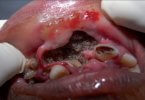What's in this article?
What is PANDAS?
PANDAS is an signifier that refers to “pediatric autoimmune neuropsychiatric disorders related to streptococcal infections.” it’s diagnosed clinically once a patient develops variety of behavioral and physical symptoms following a streptococcal infection (for example, throat infection, sinusitis, cellulitis, or scarlatina).
PANDAS causes
Consensus opinion is that PANDAS is partly caused by an autoimmune response to a strep infection. streptococcus is understood to be related to a number of immune-related disorders, including rheumatic fever, scarlet fever, and acute glomerulonephritis (a kidney disorder). The strep molecules are best-known to hide from the host immune system by mimicking host cells. Ultimately, the immune system acknowledges the foreign cells, and therefore the antibodies produced attack the bacteria, and unfortunately, some of the host’s own cells are attacked as well due to cross-reactivity. In some situations, these antibodies attack brain cells, inflicting OCD, tics, and the other symptoms oftentimes observed in PANDAS patients.
PANDAS Risk Factors
Multiple risk factors could play a role within the development of PANDAS, as well as recurrent group a streptococcal infections, family history of rheumatic fever, and also the mother’s history of getting an autoimmune disease. PANDAS is also more common in boys and prepubertal youngsters.
PANDAS Symptoms and Signs
PANDAS symptoms are just like those of obsessive-compulsive disorder (OCD), attention deficit hyperactivity disorder (ADHD), and motor or verbal tics. other symptoms include separation anxiety (the kid has problem separating from the parent), mood changes, changes in handwriting, bedwetting or change in urinary frequency, and sleep disturbances. Symptoms tend to appear suddenly, and therefore the recovery period is variable. usually the symptoms may worsen during streptococcal infections and improve in between.
Treatment for PANDAS
First-line treatments for PANDAS include cognitive behavioral therapy (CBT) and medicine, counting on the breadth and severity of symptoms. Currently, the first medical therapy is focused on controlling the OCD symptoms, and therefore selective serotonin reuptake inhibitor (SSRI) medications are oftentimes used (fluoxetine [Prozac] and others). the other additional acute measure in treating PANDAS is treating the strep infection related to the symptoms. Antibiotics are the treatment of choice to eradicate an active streptococcal sore throat infection.
Your doctor might prescribe penicillin, amoxicillin (Amoxil), azithromycin (Zithromax), or another antibiotic. For severe and refractory symptoms, the use of different treatments aimed at controlling the immune response are studied and found to be effective. These include the use of intravenous immunoglobulin, steroids, and plasmapheresis (plasma exchange therapy, in which blood is withdrawn from an individual and the liquid portion is removed and replaced and the blood is transfused back into the individual). For both treatments, the “offending” antibodies are removed. Steroids are less effective, because, although symptoms decrease throughout the treatment, they return soon when stopping the drug. additional studies are needed to be able to recommend immune-modulating therapies without hesitation.
source: Medicinenet






[…] pediatric autoimmune neuropsychiatric disorder associated with group A streptococci (PANDAS). PANDAS is a term used to describe certain children whose symptoms of neuropsychiatric conditions, such as […]